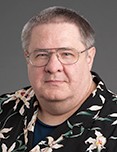28 Mar Neural Prosthetic Improved Short Term Memory Coding and Recall
MedicalResearch.com Interview with:
Robert E. Hampson, PhD
Professor, Physiology & Pharmacology
School of Medicine
Wake Forest
MedicalResearch.com: What is the background for this study? What are the main findings?
Response: There are many diseases and injuries that affect human memory, and many types of memory deficits, from inability to recall stored memories to the inability to make new memories. We focused on problems with making new memories, and identifying the brain activity associated with those memories. We found that we could identify when the brain formed “codes” for new memory, and when those codes were incorrect or faulty. By identifying what both “strong” and “weak” naturally occurring codes should be, we influence the process to strengthen the weak codes, resulting in better memory.
MedicalResearch.com: What should readers take away from your report?
Response: We were able to produce a 37% improvement in short-term memory – that is, memory that is only formed and held over the course of a couple minutes. We also saw a 35% improvement in memories that had to be held for up to an hour or more.
MedicalResearch.com: What recommendations do you have for future research as a result of this work?
Response: The first thing we need to do is more testing: we need to test the system with different types of memory, and in people with different types of memory problems. We have some technical development to do as well in order to turn this into a wearable or implantable device to restore memory function.
MedicalResearch.com: Is there anything else you would like to add?
Response: Yes, I would like to state up front that this is a team effort. Drs. Ted Berger, Vasilis Marmarelis and Dong Song at the University of Southern California are the ones who developed the mathematical modeling that our system is based on. Dr. Berger is the one who got us all started with the concept of making a memory prosthetic. At Wake Forest Baptist, my long-time colleague and mentor Dr. Sam Deadwyler started the laboratory research that we used to test the USC model. We have built an incredible laboratory and clinical team that made all of this possible.
I also want to thank Dr. Justin Sanchez at DARPA who heads the Restoring Active Memory program which supported and encouraged this project.
Citations: “Developing a hippocampal neural prosthetic to facilitate human memory encoding and recall” by Robert E Hampson, Dong Song, Brian S Robinson, Dustin Fetterhoff, Alexander S Dakos, Brent M Roeder, Xiwei She, Robert T Wicks, Mark R Witcher, Daniel E Couture, Adrian W Laxton, Heidi Munger-Clary, Gautam Popli, Myriam J Sollman, Christopher T Whitlow, Vasilis Z Marmarelis, Theodore W Berger and Sam A Deadwyler in Journal of Neural Engineering. Published online March 28 2018.
doi:10.1088/1741-2552/aaaed7
[wysija_form id=”3″]
The information on MedicalResearch.com is provided for educational purposes only, and is in no way intended to diagnose, cure, or treat any medical or other condition. Always seek the advice of your physician or other qualified health and ask your doctor any questions you may have regarding a medical condition. In addition to all other limitations and disclaimers in this agreement, service provider and its third party providers disclaim any liability or loss in connection with the content provided on this website.
Last Updated on March 28, 2018 by Marie Benz MD FAAD

